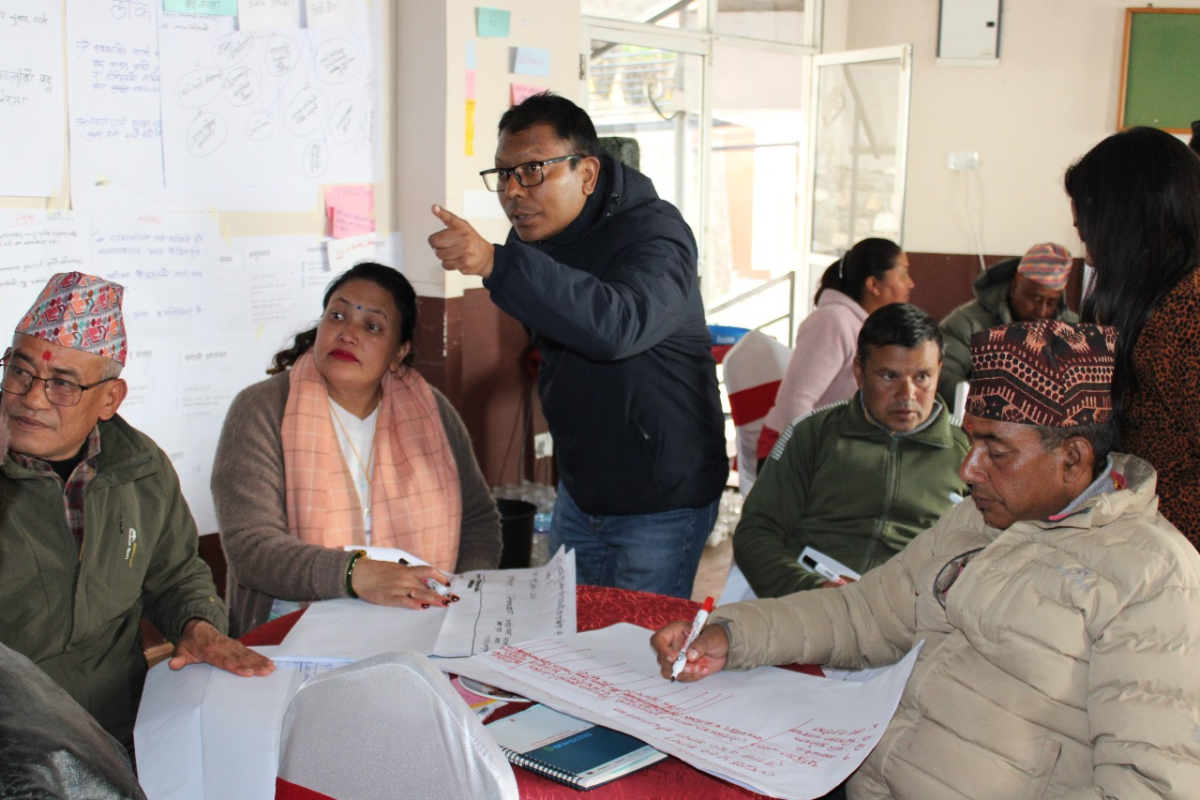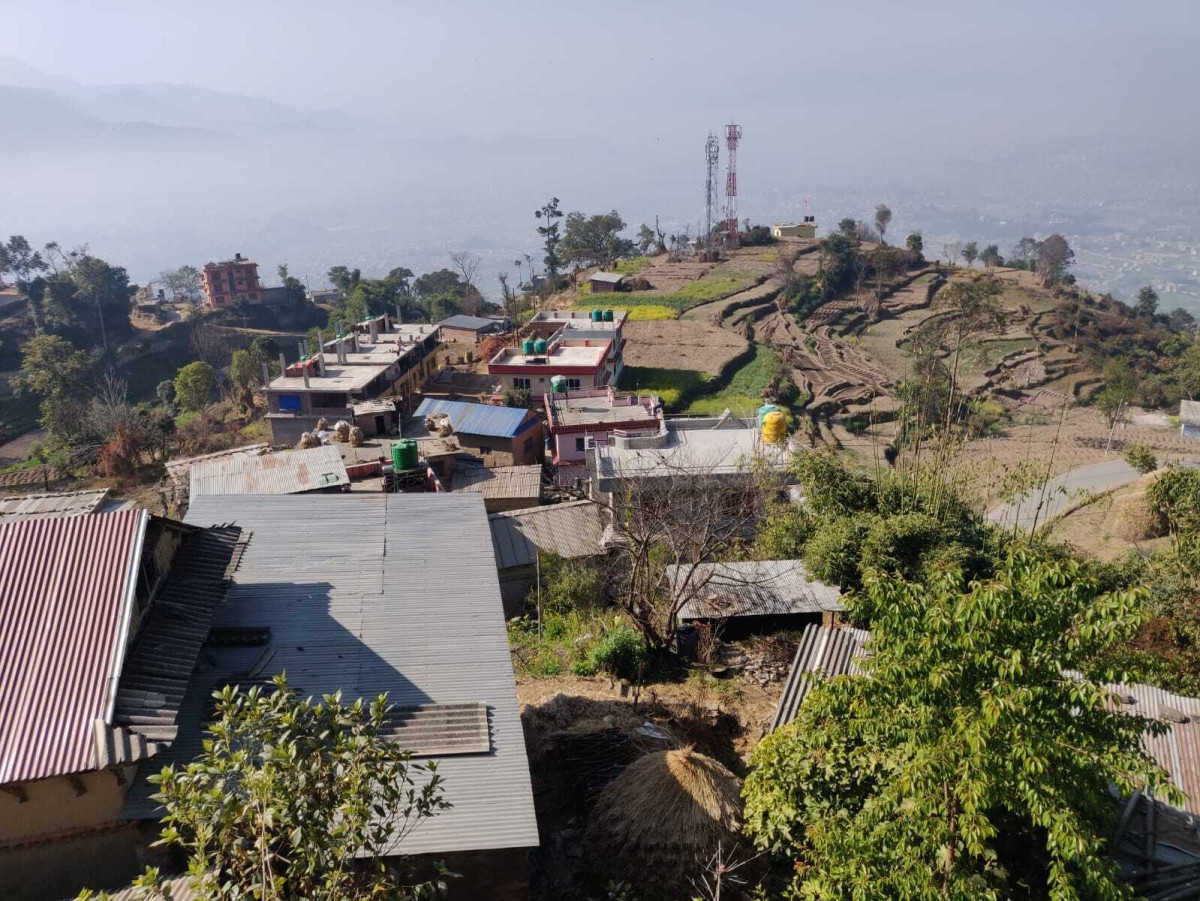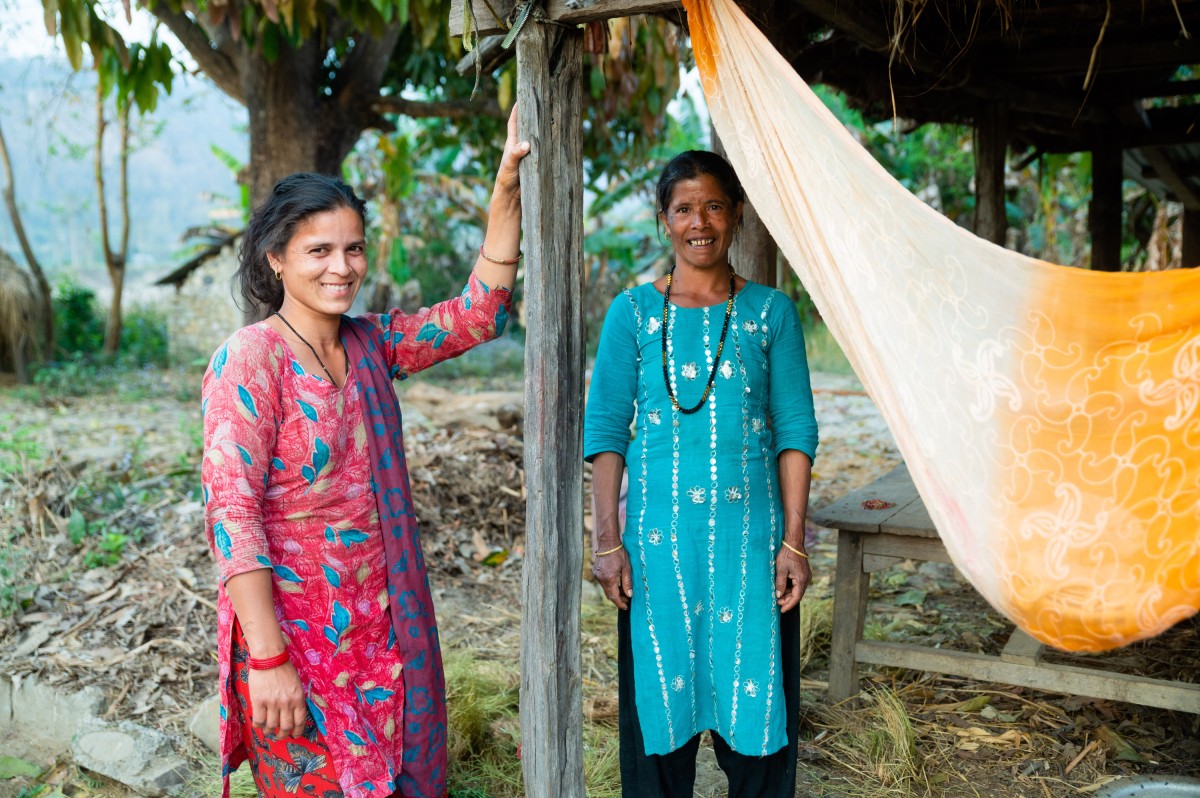Prashanna Pradhan (ENPHO): ‘Lasting change in the WASH sector starts with system strengthening’
Prashanna Pradhan, from Simavi’s partner ENPHO in Nepal, works on two important programmes: the WASH SDG sub-programme in Nepal and the Sarwacha programme. While the first one is winding down, the second one is getting started. Both focus on something that Pradhan is passionate about: the strengthening of WASH systems. ‘We are taking it one step further.’

Prashanna Pradhan has experienced first-hand how water supply systems can be built and then collapse after a just few years. ‘In the past I have been involved in several projects that didn’t last’, Pradhan said. ‘When there is no ownership, investments get lost. And then new projects need to start from scratch.’
That is not what ENPHO envisions. ‘We want to work on programmes that strengthen the whole system. So that when a programme ends, things keep improving and don’t start breaking down.’ Two of the programmes that Pradhan is working on for Simavi in 2023 – the WASH SDG sub-programme Nepal and the Sarwacha programme with Dopper – are good examples of this systems strengthening approach.
Having all the parts in place
It is about having all the parts of a machine being in place and functioning. According to Prashanna, this means you do not only have to guarantee access to water services, but to also make sure there is a proper financing system, the right institutional mechanisms and a good legal framework. ‘Only then you can start talking about the sustainability of a programme,’ said Pradhan.
But what does that mean in practice when trying to reach communities in rural areas where people have no choice but to drink contaminated water? In many areas in Nepal it is a huge problem. People who drink seemingly clean water which is in fact not drinkable and causing health problems. ‘Making people aware of this and having them understand their right to drinking water is the first step.’

Training women to set up their own business
Where necessary ENPHO also works on creating a better supply of water services and products. ‘We provide training to women so they can develop their own water filter business. And we also link them to cooperatives that can provide loans so people are capable of actually buying these product.’
Another piece of the puzzle has been to set up mini testing labs. ‘Officially the volunteer water user committees in rural communities have to test the quality of the water twice a year. But when the only testing laboratory is far away in the valley this doesn’t happen. The challenge was to set up mini testing labs close to the communities and making sure they can be profitably operated by the private sector.’
Strengthening the capacity of local government
The final challenge has been to strengthen the capacity of the local government. ‘Nepal has national regulations regarding water resource management and drinking water, but local governments are also allowed to develop their own policies. Since municipalities often lack the capacity we have supported them in making these policies and in developing guidelines on how to enforce the rules. Some elements have to be in place in order to make the machine run properly,’ says Pradhan. ‘Each municipality needs to have a WASH unit and a dedicated focal person with the right expertise.’
With the end of the five-year WASH SDG sub-programme in Nepal, Pradhan is proud to say that this has been accomplished in the programme areas in Nepal. ‘This means that we are ready to exit. All the elements of the system are set and I expect that in five more years the situation will have improved even more, following the WASH plan that has been developed.’

Learnings of the WASH SDG programme
Some of the learnings of the WASH SDG sub-programme will be directly implemented in other programmes as well. In the WASH SDG sub-programme it was ENPHO who went to the communities to create awareness and demand for better water services. ‘In the new Sarwacha programme we want to take this one step further and make sure that WASH entrepreneurs and private providers of WASH services go directly to the communities to create this awareness’, explains Pradhan. ‘Because they will be around long after the programme ends, we want to change that entrepreneurs who offer water filters stay in their shops and wait for customers to arrive. And we also want to make sure that the municipality recognises this role of the private sector in their policies.’
‘Another learning has been that in the WASH SDG sub-programme we have worked hard on having women meaningfully participate in the water user committees. But supporting women to understand their rights and helping them voice their needs is not enough. In the Sarwacha programme we will make sure that the municipality will also understand these rights and allocate budget to the demands of women. And we also want to work on developing women-only self-help groups, so there will a women-led network that can connect directly to the municipality and apply for support.’
Read about the programmes
WASH SDG
The goal of the WASH SDG programme was to sustainably improve access to, and use of, safe drinking water for at least 450,000 people, sanitation for at least 2 million people and improve the hygiene behaviours of 1.6 million people.
Sarwacha
Simavi and Dopper are working with local partners, ENPHO and Biruwa, to ensure a sustainable water supply for Changunarayan. Families in the fast-growing municipality Changunarayan in Nepal lack safe drinking water.

